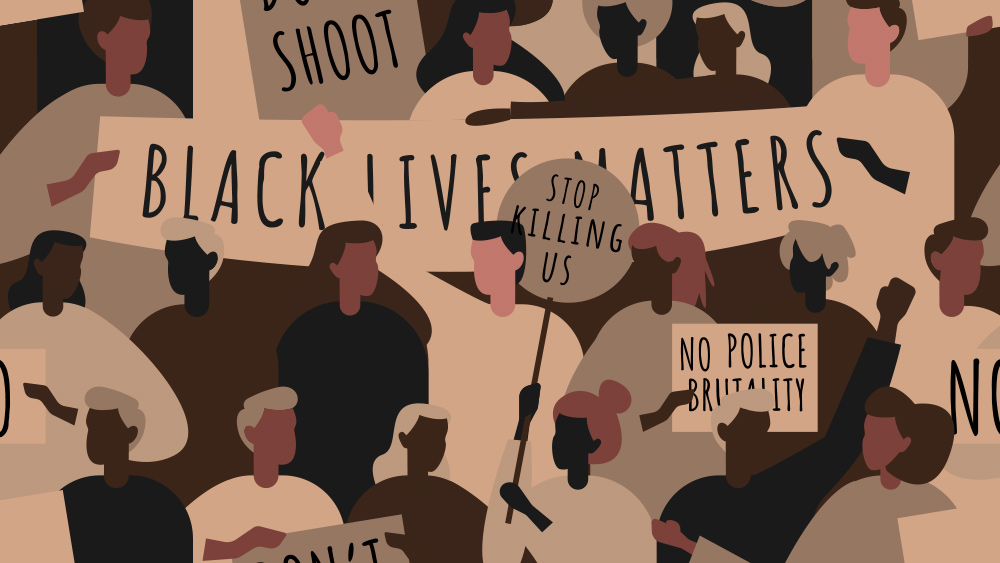The revolution comes to Juilliard
02/05/2023 / By News Editors

Turn on CNN or open the New York Times, and you may encounter someone explaining how exhausting it is to be a black person. The idea that systemic racism is leaving blacks scarred and spent has been embraced across mainstream America, articulated by corporate CEOs and university presidents. The latest performative assertion of black oppression is playing out at the Juilliard School in New York City. The controversy has significance beyond the school.
(Article by Sundance republished from City-Journal.org)
In September 2020, the Juilliard School’s Drama Division announced a series of “community meetings” to address “Equity, Diversity, Inclusion, and Belonging (EDIB) issues.” The school’s growing cadre of diversity bureaucrats would discuss Juilliard’s’ “anti-racism work.” The head of the Center for Racial Healing would give a presentation. Workshops would address such topics as “race in rehearsal” and “voice and speech and race.” NYU theater professor Michael McElroy, one of the school’s two external diversity consultants, would offer a three-day seminar in black musical culture.
These Drama Division meetings were part of Juilliard’s broader effort to bring race into all its activities, including music and dance. Damian Woetzel, former principal dancer with the New York City Ballet, became Juilliard’s president in July 2018 and proceeded to put increasing bureaucratic clout behind the concept that Juilliard has a racism problem. The school added diversity curricula and audition requirements. It beefed up its system for reporting bias incidents. It mandated diversity workshops for faculty and students.
Those efforts picked up steam after the death of George Floyd in Minneapolis on May 25, 2020. Within a week, Woetzel and the EDIB taskforce had sent out three schoolwide emails on the “work” Juilliard still needed to do to become an “anti-racist community.” The school sponsored a blacks-only “healing” space. It recommended that students and faculty read the books of Ta-Nehisi Coates, Robin DiAngelo, Ibram X. Kendi, and Michelle Alexander to understand systemic racism.
On June 11, 2020, Juilliard’s provost, Ara Guzelimian, circulated a student petition. Lending an administration email account to a student communiqué violated school protocol, but the Juilliard Student Congress’s “Call to Action” was important enough to justify the exception, wrote Guzelimian in his cover letter.
The Call to Action charged Juilliard with “systemic injustice.” It demanded an end to the school’s “almost completely Eurocentric” faculty, curriculum, and performances and a “complete in-person season featuring the works of BIPOC [Black, Indigenous, and People of Color] artists.” It called on Juilliard to create #BreonnaTaylor and #GeorgeFloyd scholarships in music, drama, and dance.
In early August 2020, the school’s black drama students issued their own Letter of Demands. The Drama Division student body is over 50 percent “BIPOC” with nearly all of those BIPOC students being black. That 50 percent black share of the student body is unlikely to have arisen spontaneously. Blacks are 12 percent of the national population, and there is no indication that they disproportionately study drama in high school and college. Yet the black drama students’ letter portrayed the Drama Division as nearly lethally bigoted. Its “racist environment is hazardous to BIPOC students’ bodies,” the letter charged. “Some students are silenced, broken, and limited by racism within the Drama Division . . . [They] have to endure harm and violence [and] sacrifice their physical and mental health every day in this institution.”
It was against this backdrop of increasing racial hysteria that Michael McElroy’s three-day “Roots to Rep” drama workshop took place. The workshop would combine history, research, and music to explore the journey of black people in this country, McElroy explained, with a specific emphasis on the way “the Negro spiritual . . . is the foundation of so many musical genres today.” McElroy asked students to prepare for the workshop by writing a paragraph about a key event in the history of black enslavement. The president of Juilliard’s Black Student Union, Marion Grey, saw this requirement as identity-threatening, but she kept her objections to herself, she told American Theater, in order to test whether the school would “protect” her in the face of such a racial assault.
On the workshop’s first day, McElroy offered a trigger warning that the forthcoming audio exercise contained the “N word.” Students could leave the Zoom session anytime they wanted, McElroy said. The lesson began with an auditory recreation of the African slave trade. A march through the jungle was followed by a slave auction, with the auctioneer extolling a “fine Black pearl” who would raise her owner “a fine litter of pickaninnies.” During this soundscape, the black students were texting each other about how “utterly broken” they were by the exercise, according to Grey, while white students and faculty, as well as a few black students, participated in the workshop without protest. Afterward, the white students recounted how moving the experience had been.
Grey then Zoomed an impassioned remonstrance about cultural appropriation and trauma. “I was like, ‘There are wounds here, and you don’t get to just explore someone’s history and culture with them—that is earned, you don’t just get that,’” she told the class, according to American Theater.
McElroy had offered this workshop numerous times before without provoking a similar meltdown. The slave-auction dialogue was taken from the widely aired miniseries Roots. The historical record contains no indication that Roots generated trauma when it was released in 1977. But Juilliard immediately terminated McElroy’s workshop and went into crisis mode. The president and provost met with Grey and her black peers. The administration launched new investigations of racial issues. Grey was not impressed. Despite getting an audience with the school’s top leadership, she did not feel “truly supported,” she told American Theater. She was the victim of a “culture of silencing.” Apparently Grey and her fellow students could not provide actual examples of such silencing, but that inability only proves how serious the silencing is. “Asking us the question, ‘When have you felt silenced?’ does not mean you will get an answer, especially when you’re not in the practice of making space for the student’s voice,” she said.
After spurning months of administrative outreach, Grey ratcheted up the pressure. On April 21, 2021, she released a teary video decrying the racism of what she called “Slavery Saturday.” “It’s maddening to have your humanity so disrespected, to have something done to you that is so wrong. It is so wrong,” she told the camera. A petition accompanying the video demanded the decolonization of the Drama Division and the hiring of an outside consultant to analyze the “inequitable, anti-black, and racist structures and systems that are built into the architecture of the Juilliard culture.” Grey claimed to be frightened that Juilliard would retaliate against her. “It’s terrifying to put myself on the line but I know my worth, I know that a wrong has been done to me.’’
The chance that Juilliard would offer any opposition to Grey’s video, much less retaliate against her for posting it, was zero. Two days after the video was released, Woetzel sent out a schoolwide email. He adopted every trope of threat and injury used by the black students: “I want to state unequivocally that this workshop was ill-conceived and should not have occurred in the manner that it did. I extend a heartfelt apology to the individuals who have been adversely affected by it.” Tackling difficult topics is a responsibility of artists, Woetzel said, but Juilliard must do so “in a manner that respects and protects the members of our community.” Woetzel called the auditory experience of enslavement “extremely distressing and problematic.”
Woetzel was implicitly accusing McElroy, who is black himself, of putting Juilliard’s black students at risk through an “ill-conceived” historical recreation. The school did not respond to an inquiry asking whether Woetzel had sought McElroy’s perspective before calling his presentation “ill-conceived.” The school also refused to spell out what exactly was “problematic” about the exercise or what criteria Juilliard would use in the future to ensure that pedagogy “protects members of [the] community.” (McElroy declined to be interviewed for this article.)
The dean of the Drama Division, Evan Yionoulis, apologized for the workshop, too, in an email appended to Woetzel’ s own. The workshop never should have happened, Yionoulis wrote, throwing McElroy under the bus as decisively as Woetzel had done. Yionoulis felt “remorse” for engaging McElroy and for not stopping the exercise once it was in progress, though it is not clear how the school could have known to do so. Yionoulis lamented the “trauma” caused by the workshop without explaining in what, exactly, such trauma consisted. The school will continue to try to “facilitate healing,” Yionoulis said, but it also recognizes that it “cannot fully change the impact of what happened, nor . . . erase all that was experienced in that moment.”
Read more at: City-Journal.org
Submit a correction >>
Tagged Under:
CNN, culture wars, EDIB, Juilliard School, left cult, liberals, mainstream media, progressives, propaganda, race wars, racism, society, woke, wokeism
This article may contain statements that reflect the opinion of the author
RECENT NEWS & ARTICLES
COPYRIGHT © 2017 BIASED NEWS




















